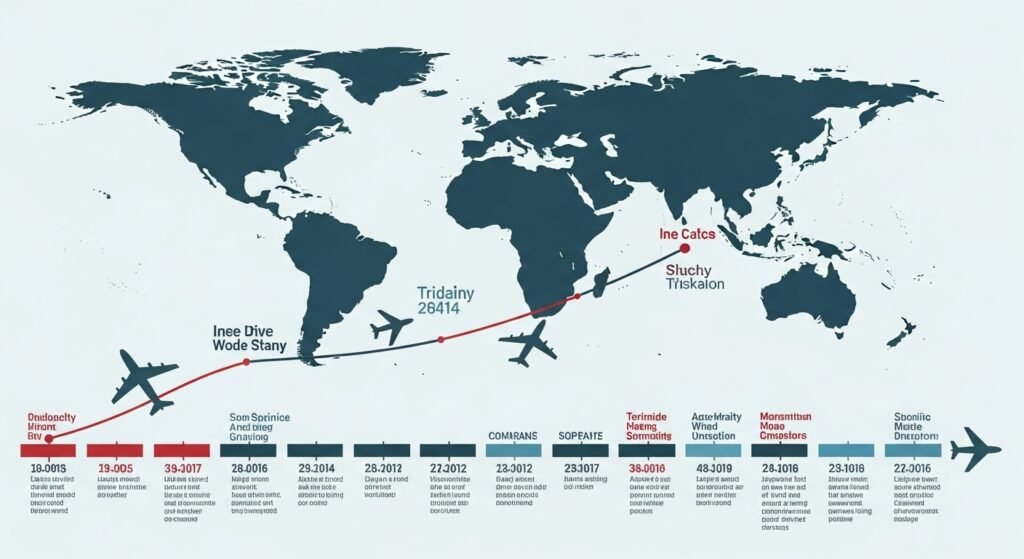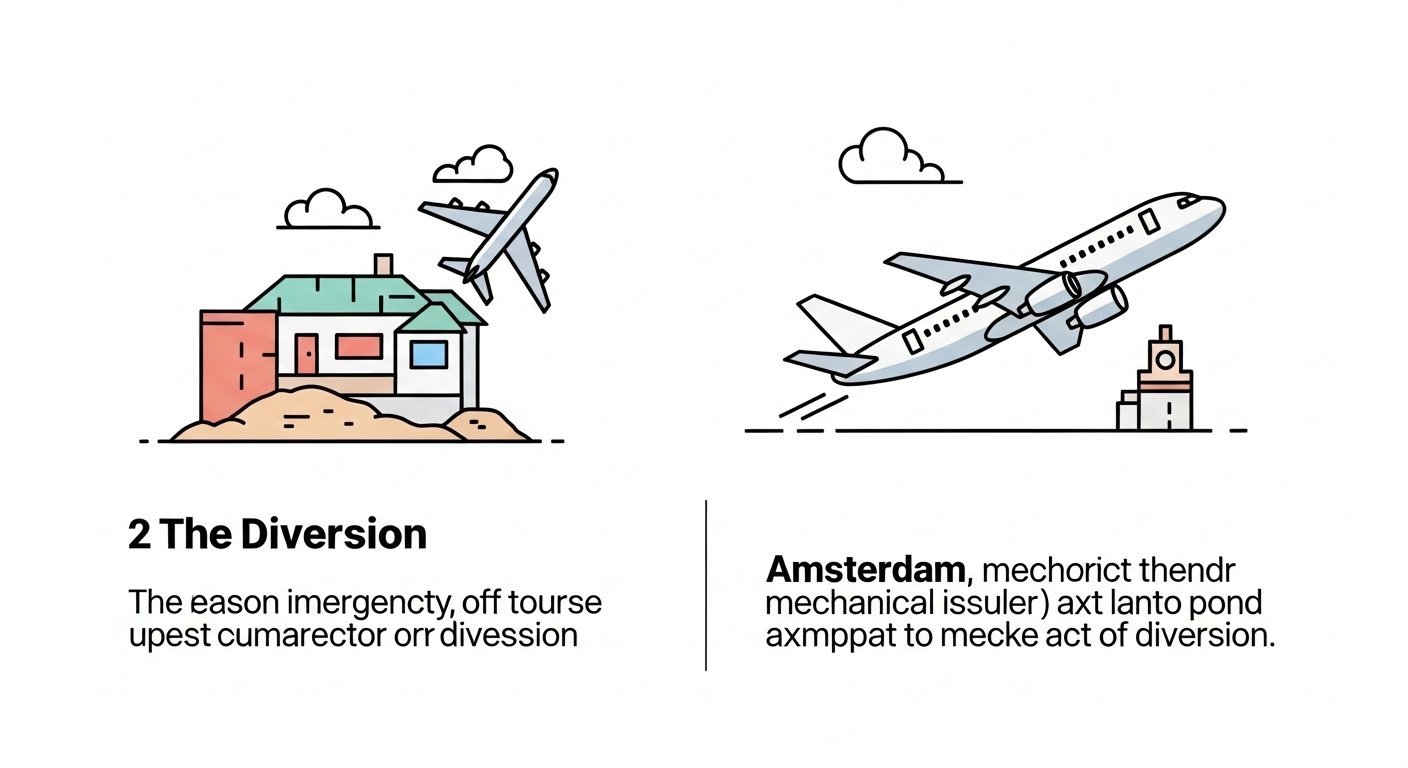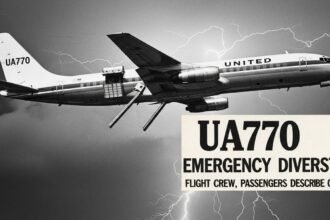Flying is often smooth and easy, but sometimes, things don’t go as planned. That’s exactly what happened with Delta flight DL139, which was supposed to fly from Venice, Italy to Atlanta, USA. But instead of landing in Atlanta, the flight was diverted to Amsterdam. Confused passengers and curious minds want to know what really happened. This helpful guide will explain everything you need to know about the “Delta DL139 Venice Atlanta diversion Amsterdam” in simple, friendly language. We’ll look at why the plane changed course, what happens during diversions, and what you can do if you’re ever in a similar situation. So, let’s take off and explore this journey together.
What Is Delta Flight DL139?
Delta flight DL139 is a regular international route operated by Delta Air Lines. It starts in Venice Marco Polo Airport (VCE) and usually ends in Hartsfield-Jackson Atlanta International Airport (ATL). It’s a long flight crossing over the European continent and the Atlantic Ocean. The aircraft used is often a wide-body jet like the Airbus A330, which is designed for long-distance travel with hundreds of passengers. On the day it diverted, passengers boarded in Venice expecting to land in Atlanta—only to find themselves in Amsterdam hours later.
Why Did Delta DL139 Divert to Amsterdam?
So, what caused the diversion? Early reports point to a technical issue with the aircraft. In aviation, when something seems off, even slightly, pilots are trained to land at the nearest safe airport. In this case, Amsterdam Schiphol Airport (AMS) was the smart choice. It’s a large, well-equipped airport close to the flight path and has Delta team members and maintenance crews on-site. Instead of risking a potential issue on a long Atlantic crossing, the pilots followed safety protocol and made the right call by landing early.
What Happens When an International Flight Gets Diverted?
When a flight like Delta DL139 gets diverted, things can move quickly and cause some confusion. The pilot will first announce the change to the passengers. Sometimes they may not know all the details but will keep everyone informed. Once the plane lands, airline teams step in to help with new travel plans. Passengers may need to go through customs, collect their bags, get hotel accommodations, and wait for a rebooked flight. It can take time, but the airline’s focus is on keeping people safe, calm, and cared for during unexpected changes.
How Do Airlines Choose Where to Divert?
Airlines don’t just pick a diversion airport randomly. The pilot and airline operations team think about several important factors before making a decision. These include how far the nearest suitable airport is, whether it can handle the plane’s size, weather conditions, safety services, and the presence of airline support staff. In the case of Delta DL139, Amsterdam was the best option. It is one of the busiest airports in Europe, has long runways, modern facilities, and a hub for Delta’s airline partners. That makes it a safe and smart choice during an emergency or technical issue.
What Was the Passenger Experience Like?
Many passengers shared their stories online after the DL139 diversion to Amsterdam. For most travelers, the midair announcement created some worry. But the Delta crew stayed calm and professional, which helped ease stress. When they landed in Amsterdam, passengers were met with airport staff and Delta agents who helped them with hotel bookings, rebooking flights, and guiding them to new connections. While delays are frustrating, most passengers appreciated how quickly the airline responded. They were thankful for the help, even though they ended up far from home.
What About Baggage and Connecting Flights?

One of the biggest questions passengers had involved their checked bags. What happens to luggage when you land in a country you weren’t planning to visit? Delta works as quickly as possible to re-route luggage. This includes scanning, retagging, and redirecting bags to match new flight plans. Sometimes, bags may be delayed by a day, but they do catch up. For connecting flights, Delta tries to rebook passengers automatically and give updates via text, email, or the Fly Delta app. Still, it’s smart for passengers to double-check with Delta staff at the airport to confirm their status.
How Common Are Diversions Like This?
Flight diversions happen, but not often. Major airlines like Delta operate thousands of flights every day, and the vast majority arrive as planned. But if a computer warning light appears or a part isn’t working right, pilots don’t take chances. They choose the nearest compatible airport, just like they did with the Delta DL139 Venice Atlanta diversion to Amsterdam. These events are rare but show how airline crews are trained to keep everyone safe by acting fast and following safety rules.
What Compensation Can Passengers Expect?
Many travelers ask if they’ll receive compensation when a diversion occurs. The answer depends on the reason for the delay and where the flight takes place. Because this flight began in the European Union, EU laws like Regulation (EC) No 261/2004 may apply. This law states that if your flight is delayed or disrupted due to reasons under the airline’s control (not weather), you may be eligible for money compensation. Also, most airlines provide meal vouchers, hotel stays, and help with rebooked flights in cases like this. Travelers should contact Delta’s customer service or file a claim online if they think they qualify.
What Should You Do If Your Flight Gets Diverted?
It’s good to be prepared and know what to do if you ever face a situation like the Delta DL139 diversion. Here are some smart steps to follow if your flight is rerouted:
Keep calm and listen to announcements through the PA system. Follow cabin crew instructions. Have your passport and travel documents ready. As soon as you land, check messages or email from the airline. Visit a customer service desk to confirm your new flight. Ask about hotel or meal vouchers if your delay is long. Keep receipts for any extra spending so you can request reimbursement later. Use the airline app to track changes. These little steps can make a big difference in an unexpected travel day.
Why Was Amsterdam the Best Place for the Plane to Land?
Amsterdam Schiphol Airport was an ideal location for this type of diversion. It’s one of Europe’s biggest and busiest airports with strong ties to Delta’s airline partners. The airport has six runways, full customs and passport control services, hotel options, and advanced aircraft repair facilities. Delta and KLM (a SkyTeam partner airline) both operate out of Schiphol, so assistance and rebooking options are available fast. While it wasn’t the original plan, for safety and logistics, diverting DL139 to Amsterdam was the best possible decision in that moment.
Lessons from the Delta DL139 Diversion
Every air travel incident teaches us something, especially when it ends safely. The Delta DL139 Venice Atlanta diversion reminds travelers just how many people work behind the scenes to keep flights safe. From pilots to maintenance crews to airport staff, the focus is always on passenger care. It also shows the value of preparedness. Make sure to pack any must-have items like medicine, ID, and chargers in carry-on bags, and keep travel documents reachable. These small habits become life-savers in unexpected events.
FAQs
1. Why did the Delta DL139 flight divert to Amsterdam instead of flying to Atlanta?
The plane faced a technical issue midflight. To stay safe, the crew landed at the nearest large airport, which was Amsterdam.
2. Was it an emergency landing?
No, it was a safe and controlled landing. The pilots followed safety rules to avoid further problems.
3. Did passengers miss their connecting flights?
Yes, some passengers experienced delays and had to be rebooked on new flights by Delta’s staff.
4. What happened to everyone’s luggage?
Delta worked to redirect bags based on the passengers’ new flights. Some luggage may have arrived later.
5. Will travelers get compensation for the delay?
Possibly. Since the flight started in Europe, travelers could qualify under EU261 if the delay was not caused by weather.
6. Is this kind of thing common when flying internationally?
No, it’s rare. Still, safety always comes first, and pilots make diversions if there’s any concern.
Conclusion
The Delta DL139 flight from Venice to Atlanta took a surprising turn when it landed in Amsterdam instead. But this event shows how trained, smart, and quick-thinking crews act in moments that matter most. Travelers may have faced delays, but they were kept safe — and that’s always the main goal in air travel. For future flights, pack smart, stay calm, and trust the professionals guiding the journey. And remember, even when the path changes, your destination might still be reached safely — just with a little extra adventure along the way.






